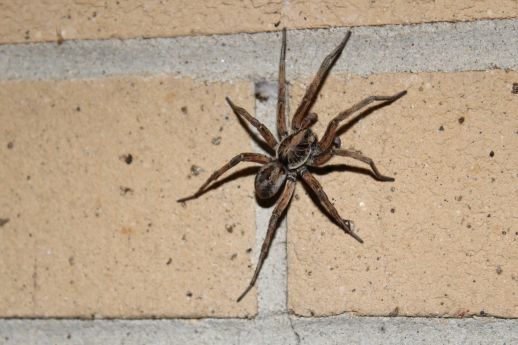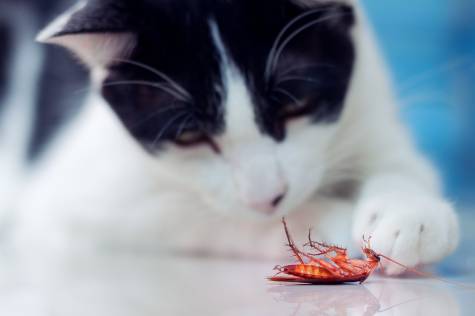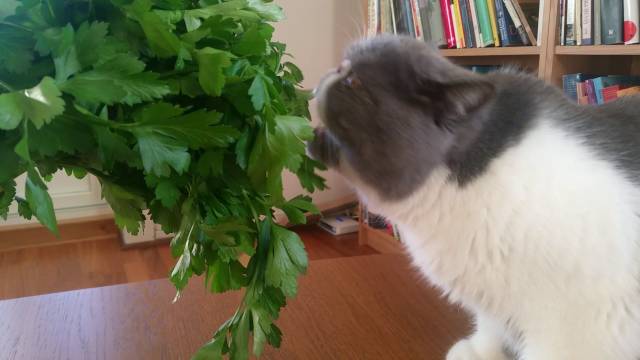Connect with a verified veterinarian in minutes. Licensed vets are available 24/7 to answer your questions. No need to worry about your furry family member.
Most of us have spiders, such as the wolf spider, in our homes. And if you have a cat, her natural predatory instincts may cause her to chase and even eat a wolf spider! But what happens if a cat eats a wolf spider?
Has your cat eaten a wolf spider? Are you worried the wolf spider will make your cat sick? If so, you’ve come to the right place. We understand it can be scary when your cat eats something like this.
We’ve gathered information about wolf spiders and whether they can make a cat sick. Let’s get started!
What is a Wolf Spider?
Wolf spiders belong to the Lycosidae family of spiders. These spiders are unusual in that they don’t weave webs to catch their prey. Instead, wolf spiders hunt their prey down, much like your cat hunts! Some of these spiders may wait in or near a burrow and pounce on prey as it passes. These are great hunters!
These spiders can vary in size from .5 “ to 2”. They can vary in color from orangish-brown to gray or black, with splotches or stripes of color. They have eight legs.
Wolf spiders can live almost anywhere on the ground, under leaf piles, and more. They also seek shelter in the fall and usually look for a place to live indoors.
What happens if your cat eats a wolf spider?
Wolf Spiders & Cats
Wolf spiders are not toxic to cats; however, these arachnids carry venom to kill their prey. They also have large fangs that can penetrate human and cat skin. In most cases, the larger the spider, the more venom it carries. These spiders can bite and inject their venom into a cat.
These spiders usually stay away from humans and larger animals. However, they may bite in self-defense if they feel threatened (like when your cat is chasing them). And their venom could make a cat sick or even cause death. It depends on the amount of venom and the size of the cat.
Your cat may suffer a bite near her mouth if she’s trying to eat the spider. The wolf spider could also bite her paw.
However, we must note that if your cat eats the spider and is not bitten, the spider will not make your cat sick. The cat’s body will treat the spider like any other protein and digest it without any problem.

Review symptoms, medications & behavior to keep your pets healthy with a Vet Online in just minutes.
Ask a Vet Live NowSymptoms of Wolf Spider Bites in Cats
You may notice these symptoms if your cat has been bitten by a wolf spider:
- Trembling
- Swelling around the bite
- Restlessness
- Diarrhea
- Lethargy
If you notice these or other symptoms, call the vet immediately. This is an emergency.
Treatment of Wolf Spider Bites in Cats
There is no antidote for wolf spider bites, so the vet will use supportive care and medications to treat your fur baby’s symptoms. This may include an IV for fluids and to administer medications.
Depending on the severity of your feline companion’s symptoms, she may need to be hospitalized until she’s in stable condition.
The prognosis is best for cats that receive prompt medical treatment after a wolf spider bite. In the future, you may want to consider hiring a professional exterminator if your home seems to be infested with wolf spiders. You and your fur baby will be happier for it!
Connect with a verified veterinarian in minutes. Licensed vets are available 24/7 to answer your questions. No need to worry about your furry family member.

Tom
Tom has always loved to write since he was little - he wanted to be either a writer or a veterinary doctor, but he ended up being a professional writer while most of his works are based on animals. He was born in San Francisco but later moved to Texas to continue his job as a writer. He graduated from the University of San Francisco where he studied biotechnology. He is happily married and a soon to be father!
Review symptoms, medications & behavior to keep your pets healthy with a Vet Online in just minutes.
Ask a Vet Live Now




